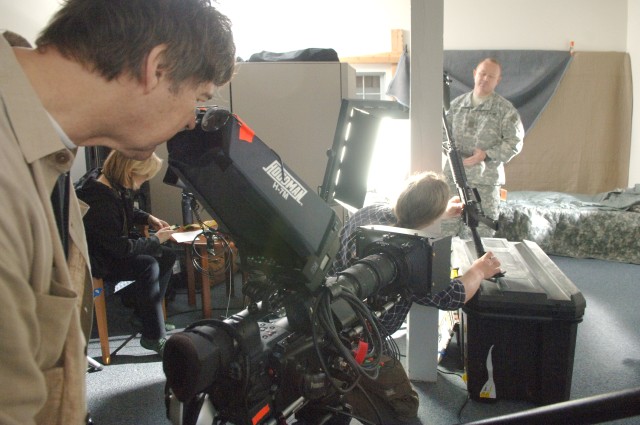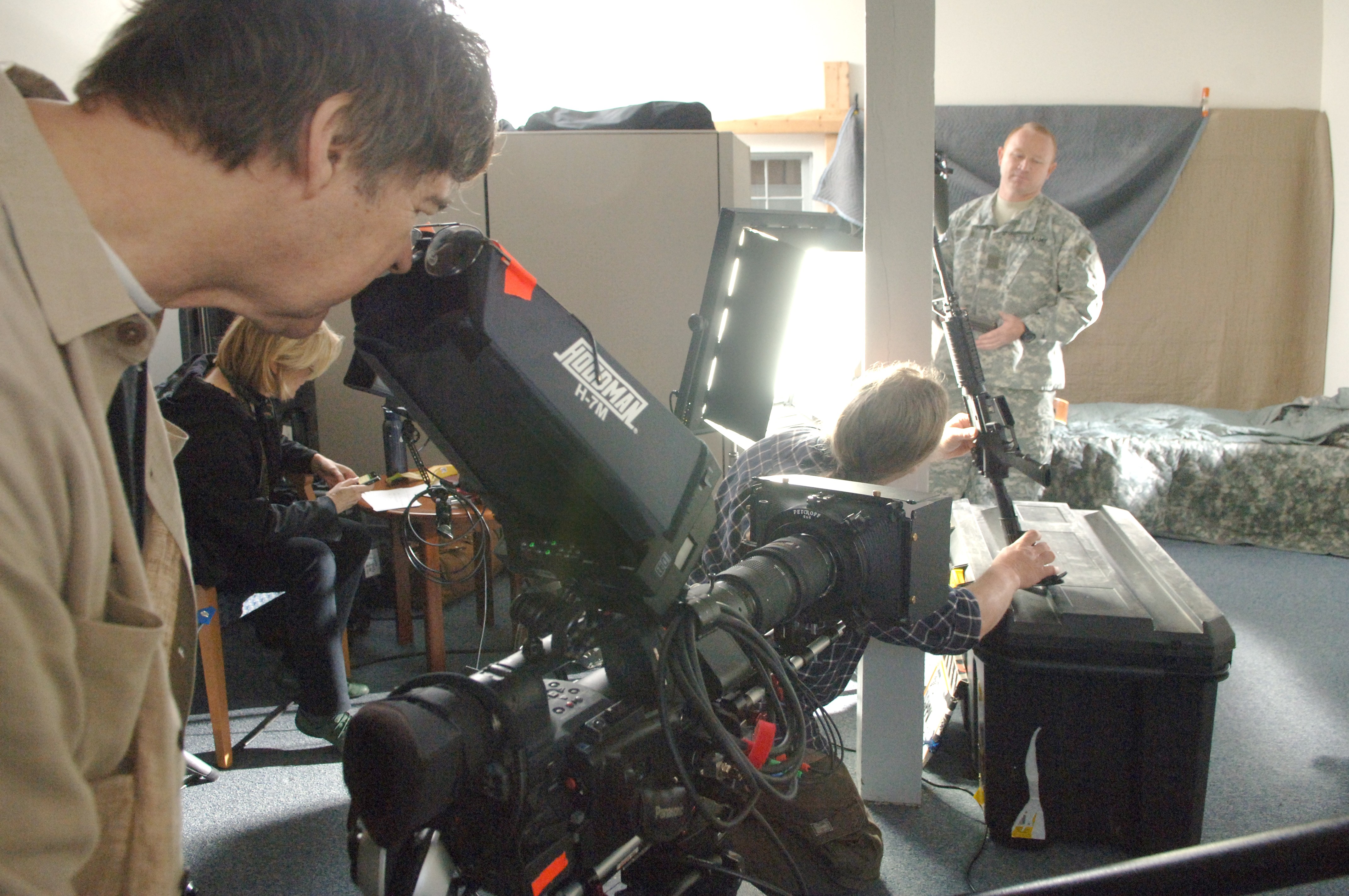FORT BELVOIR, Va. - Hours of research paid off in a big way last week when a group of filmmakers returned to Fort Belvoir to film the second installment in an ongoing series of suicide prevention videos for the Army.
Called "Shoulder to Shoulder," director Kristin Westbrook said the video is the culmination of countless interviews she and her crew conducted with focus groups from Fort Riley, Kan. and Fort Bliss, Texas, over the winter.
Joined by her husband, Wayne, who is the video's cinematographer; and producer Mark Ford; the group is supported by the Army's G-1 Office at the Pentagon. Also, Soldiers from around Belvoir took time out of their schedules to jump in front of the camera and serve as actors for a day.
Among those lending a hand during the two-day shoot were Soldiers from the installation's Advanced Individual Training School.
"Isolation is a big problem when it comes to suicide. It's our job to help Soldiers not only get help for themselves, but for their buddies," Westbrook said. "Soldiers from the focus groups we talked to said they wanted to learn more on how to identify signs of depression and how to reach out to those close to them. That's what we're emphasizing with this video. What we want most is to remove the stigma that getting help is a sign of weakness."
Whereas last year's video introduced the problem of suicide, Westbrook said this video is more positive in tone and encourages Soldiers to take on a more active role in looking out for one another. She said it should also discourage any notion among Soldiers that getting help could affect a possible promotion.
Lt. Col. Ray Rosales, who has been working with the Army's Suicide Prevention Task Force for more than a year, was present during the video's production and will oversee two more videos on suicide prevention this year. According to him, its message is crystal clear.
"Our purpose is to achieve awareness among Soldiers, families and civilians. If they see someone in distress, or notice a change in behavior with someone they love, it's important to reach out and talk to that person," Rosales said. "What makes this video different is that it includes interviews with real-life people who attempted suicide, as well as people who wished they had paid more attention and, unfortunately, wound up losing someone."
Those first-hand testimonials really hit home, Rosales added, and should add even more weight to the video's overall theme. He noted that Army-wide distribution of the video will occur in mid-June.
"We may be the ones with the camera, but this is truly a team-effort," Westbrook said. "If people take just one thing away from this video, I hope they remember that getting help is just a tune up."


Social Sharing